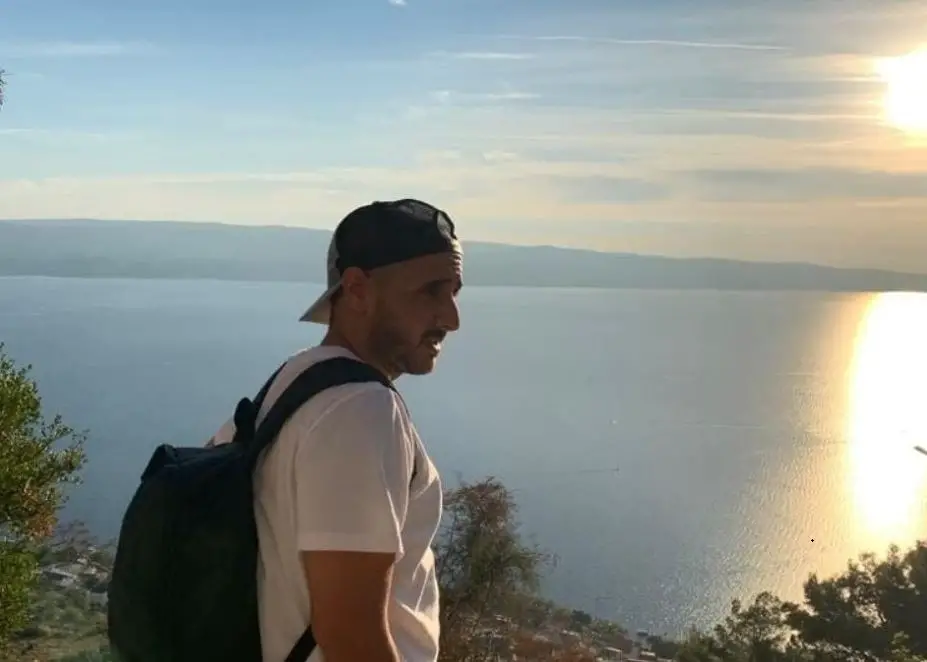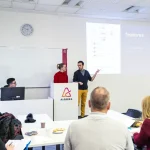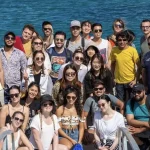Among the many foreign tongues heard around the Croatian capital these days is the growing number of students choosing to do their graduate programmes in Croatia. A safe, affordable EU country, with a rapidly expanding programme of high-quality graduate courses in English, with excellent employment opportunities upon graduation, are just some of the reasons for choosing Croatia. And the quality of that education was highlighted recently, as Algebra University College signed an academic partnership agreement with Goldsmiths, University of London (as reported previously on TCN), thereby allowing Algebra students to study under the approved programmes of one of the 500 best universities in the world according to the World University Ranking.
Despite the growing excellence of English-language graduate and post-graduate education in Croatia, the opportunities are not so well known, and so TCN – in partnership with Algebra University College – has compiled an authoritative guide to what you need to know about studying in this beautiful country. Check out the Total Croatia Study in Croatia guide.
Nothing paints the real picture of studying in a foreign country better than the real experiences of students living the day-to-day reality. In a new series on TCN, we meet some of the international students who have fallen in love with Croatia, many of whom plan to stay and work here if they can find employment. We look at the realities of life, why they chose Croatia, and what advice they have for others contemplating studying in Croatia.
Next up, alumni Mohamed Hafez from Egypt, alumni, who studied Digital Marketing at graduate level at Algebra University College.
1. You chose to study in Croatia. Tell us what were the main factors in that decision.
First, because I found the exact type of degree that I wanted to acquire at that time, the curriculum was exactly how I wanted it to be. Second, I knew that Croatia is a beautiful country that has so many things to do and enjoy. Third, maybe because Croatia is not so far from home and also the weather is relatively very good here compared to other European countries.
2. How is the experience so far? Give us some pros and cons.
Great experience, lots of things learnt academically, great support from my professors, mentors, colleagues, and friends. The two main cons of my trip are the language barrier, despite the fact that English is spoken widely in Croatia, speaking Croatian would have boosted my social experience. The second con is handling the paperwork and dealing with the red tape.
3. How was your perception of studying in Croatia different from the reality? Give us some things that have surprised you about the experience?
I didn’t really have any sort of perception prior to starting the experience and going to Croatia, I just connected with Algebra and I felt it is the place that suits me, given that it is a very technical and modern school. Even so, I was surprised by how welcoming, supportive and friendly the people here are.
4. How easy was it to do the paperwork to enroll in the study programme? Any suggestions to improve things?
I cannot recall the enrollment process but I would suggest giving the student resident permit for the length of the studies instead of the yearly renewals that take months to accomplish.
5. Tell us a little about the accommodation and the cost of living.
I cannot say the cost of living is much different from other European cities but definitely, the accommodation and apartment rentals are much less expensive which is a big thing for students.
6. Finding work is a key priority for students, both to help finance their study, but also upon graduation. How hard have you found it to find work, and what are the main obstacles?
I would say it is not easy to find a job in Croatia as a foreign student, especially the exact job you want, however, when you put enough effort into it you would probably reach it eventually. I would say the main obstacle is the language barrier.
7. Tell us about the Croatian lifestyle and making friends. How has it been for you?
The best things to enjoy as a student in Croatia is the lifestyle, reading a book and drinking a coffee for 3 hours on a great sunny day uptown. Enjoy the grocery shopping at the Plac where there is all the homegrown and homemade products. Make friends easily and hang out at the skatepark.
8. Do you plan to (try and) stay in Croatia when your studies finish? Why/not?
Yes because as long as I am having a good experience and I am able to grow personally and professionally then I have no reason to relocate.
9. Three things you have enjoyed most about your experience studying in Croatia?
First, the friends I made, the colleagues and professors I connected with are the best thing I enjoyed in my experience. Second, the mountains, the forests and the sea. Third, coffee, food, and beer.
10. What advice do you have for people who are considering studying in Croatia?
I advise them to prepare, research, and plan well, and discover the potential of the fields they want to study in Croatia, their unique points. Try to learn some Croatian language, the sooner the better in order to get the most out of the experience.
Are you an international student on a graduate or post-graduate course in Croatia, who would like to be featured in this series? Contact us on paul@total-croatia-news.com Subject Study.
To learn more about the options for studying in Croatia, check out the Total Croatia Study in Croatia guide.
For more information on courses offered by Algebra University College, visit the official website.












